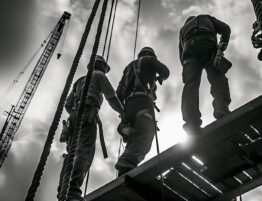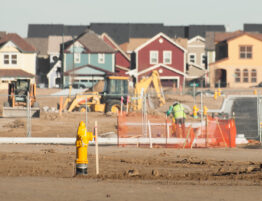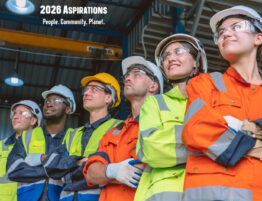
The government’s new Immigration Bill (which takes effect on January 1st 2021) introduces a new points-based system for anyone wishing to live and work in the UK.
Achieving the 70 point requirement will be based on things like the level of English a person can speak, whether they have a confirmed job offer, the skill level of that job and a minimum salary (£25,600 for Tier 2 skilled workers). At the moment, there would appear to be very few options for foreign low-skilled workers other than a temporary visa for some jobs where there are shortfalls.
For construction workers, under the new rules, this means that many skilled trades like bricklayers, carpenters and electricians will be able to work in the UK after Brexit as they will be classified in the Tier 2 category, which allows a five-year stay.
However, with several other roles excluded from the new system, Construction leaders have been warning of the potential disruption that will be caused by labour shortages.
It is thought that approximately 14% of the UK’s construction workforce are skilled and unskilled workers from overseas. Even in the context of COVID (where job losses have led to a short-term increase in the supply of labour), leaders say that over the long-term the industry will still need to access foreign labour.
Earlier this summer, Chairman of the Construction Leadership Council, Andy Mitchell, wrote to business secretary Alok Sharma calling for an amendment that would help construction ensure it can adequately access the labour it needs, including those in the lower skill categories. His request included extending the ‘temporary worker’ route from 1 to 2 years.
Mr Mitchell said: “A number of roles remain outside of the proposed new system such as labourers, dry liners, asbestos removers and some plant operators, despite a clear need for them. The Government’s proposal for low-skilled migrant labour is the temporary worker route. However, if this is to work for our sector, the duration of the work permit will need to be extended to two years. We ask that you consider amending the proposed Bill to reflect these concerns; otherwise the industry will be faced with a shortage of labour supply.”

In addition to this request for change, Mr Mitchell has also asked for greater clarity around potential border arrangements and how construction businesses can prepare for a no deal Brexit – especially in relation to sourcing materials and issues around their standardisation/ regulation.
He said: “Currently, businesses are unable to adequately predict the prices and costs of materials and goods that originate from the EU after 1 January 2021. Without being able to anticipate their ability to reliably source and cost materials and products when needed will have profound impacts on business planning, site operations, project completion, contractual uncertainty, cash flow and ultimately, business survival.”
On the standardisation of regulation of products and materials, Mitchell added: “While the government has announced the creation of UKCA [UK Conformity Assessed] to replace the CE mark, it would be preferable for our industry if we could reach an agreement that achieved mutual recognition of such standards.
“Without mutual recognition of, for example, testing standards, UK businesses will have to repeatedly test products for different markets, which will add substantial costs and cause delays, damaging UK competitiveness.”
As far as we’re aware, there has been no significant changes since Mr Mitchell made his request to government but we’ll keep you updated if we hear anything further which might affect our industry.
Meanwhile, our best guess is that, having gone through a year of COVID related struggles, January 2021 might be the start of another bumpy road for many in the industry. Here at Sheriff, we’ve made it through COVID by sticking to some key company principles and are sure we’ll get through this next hurdle the same way.
08.09.2020
Feature image: Ascannio/Shutterstock.com
Secondary image: Ratlos/Shutterstock.com








